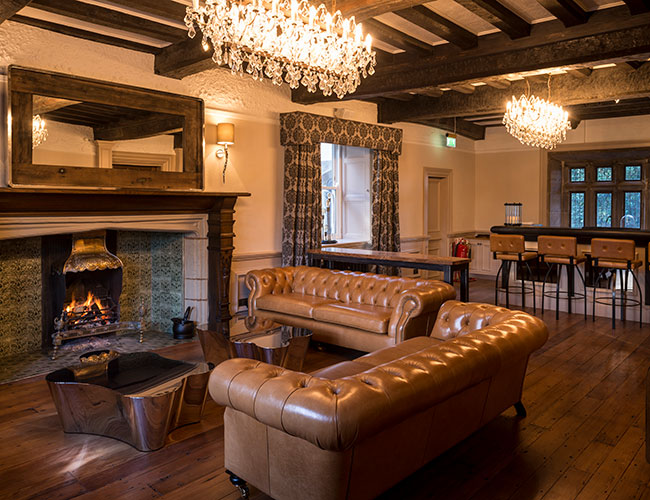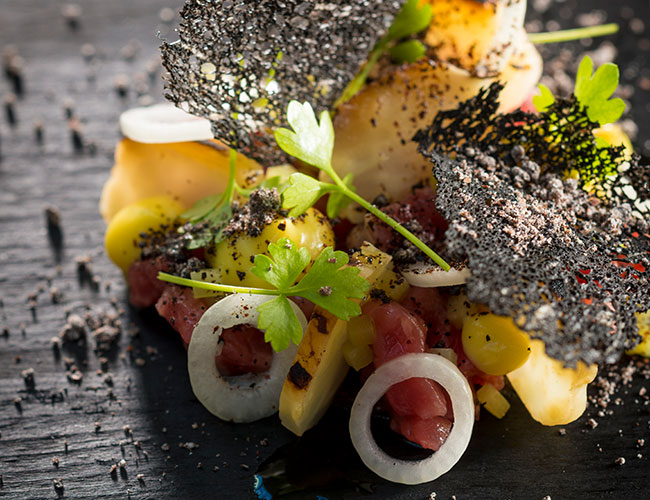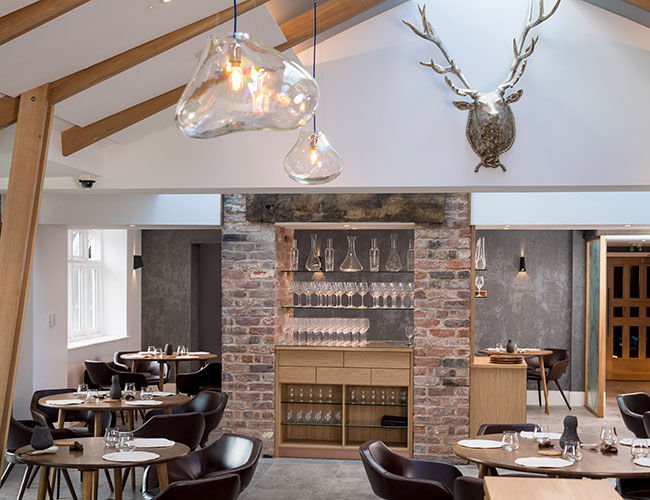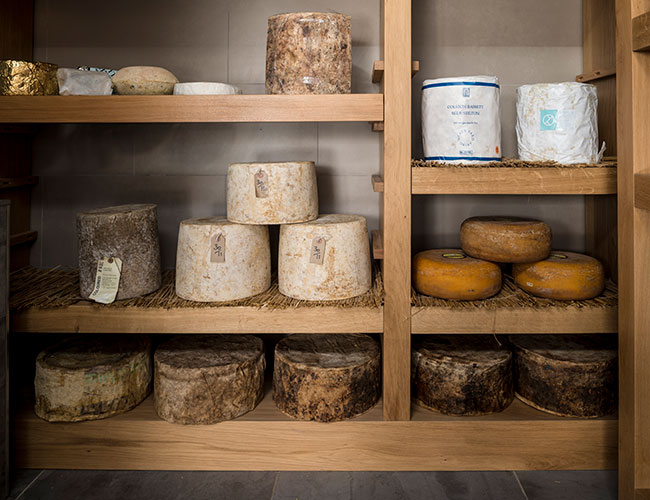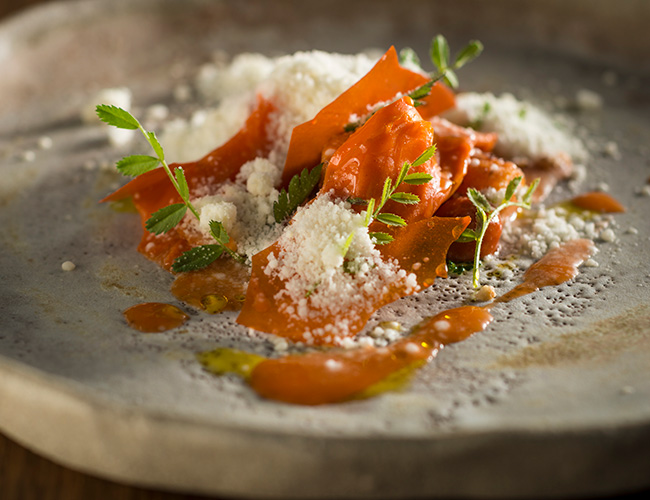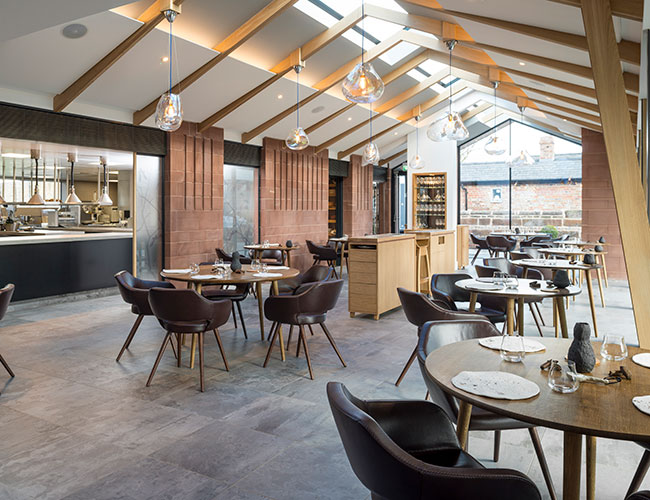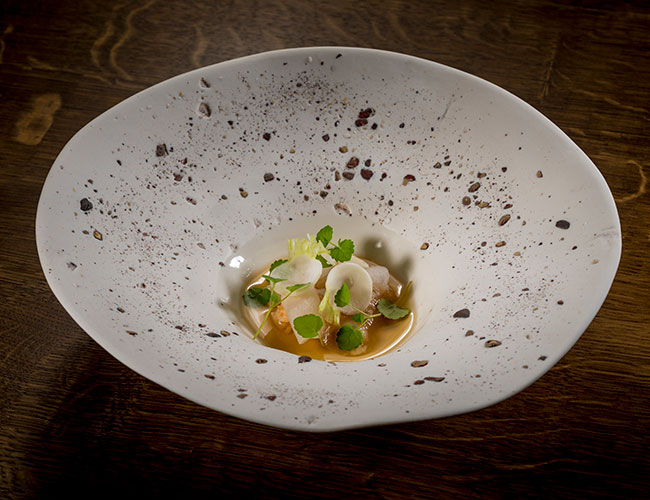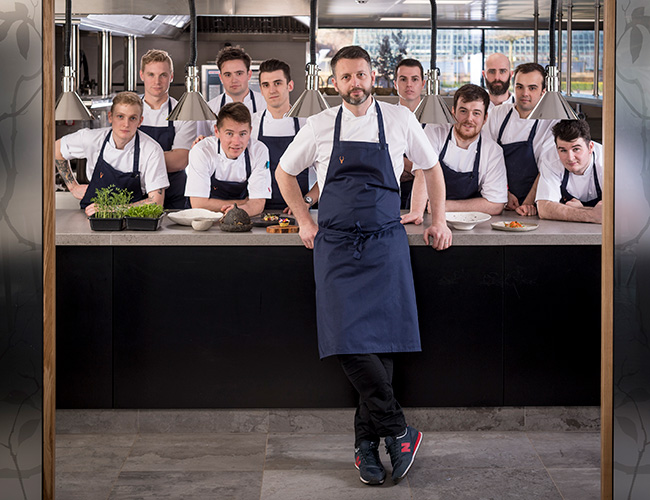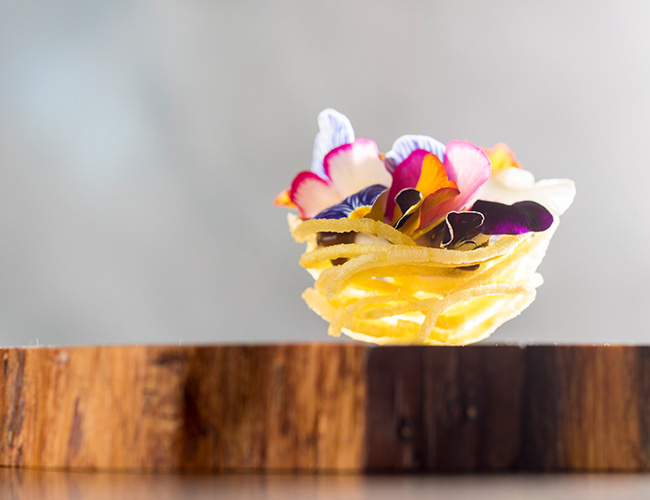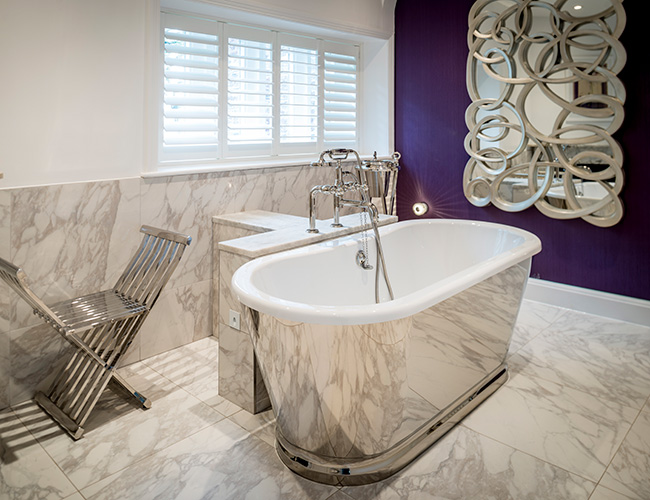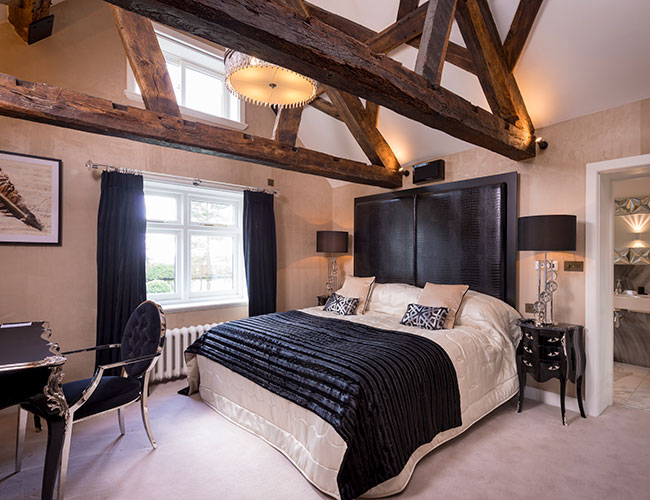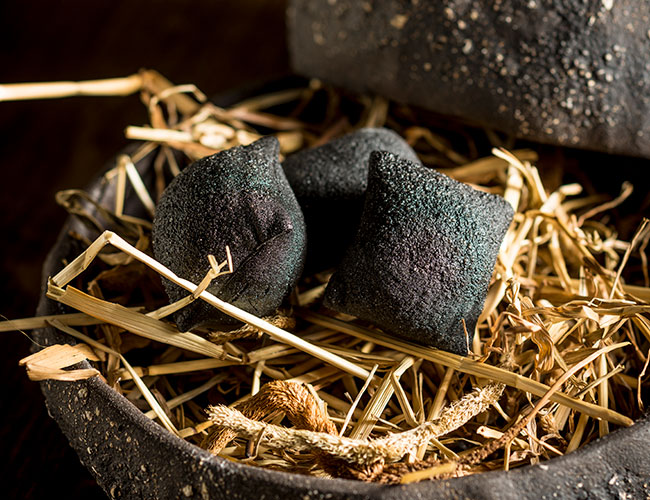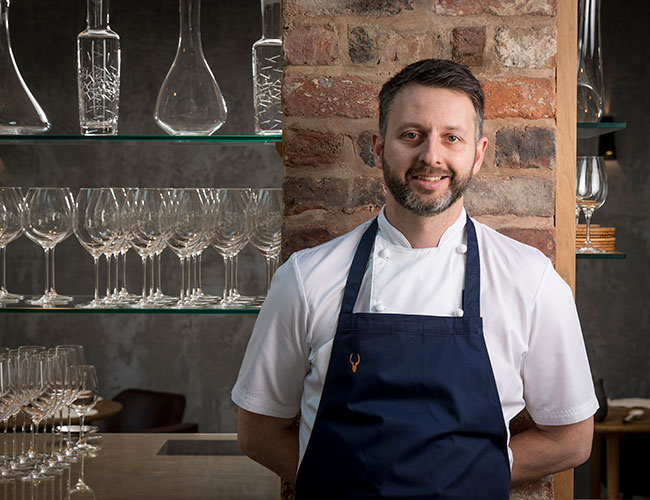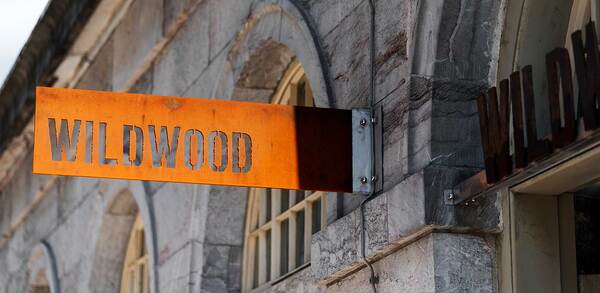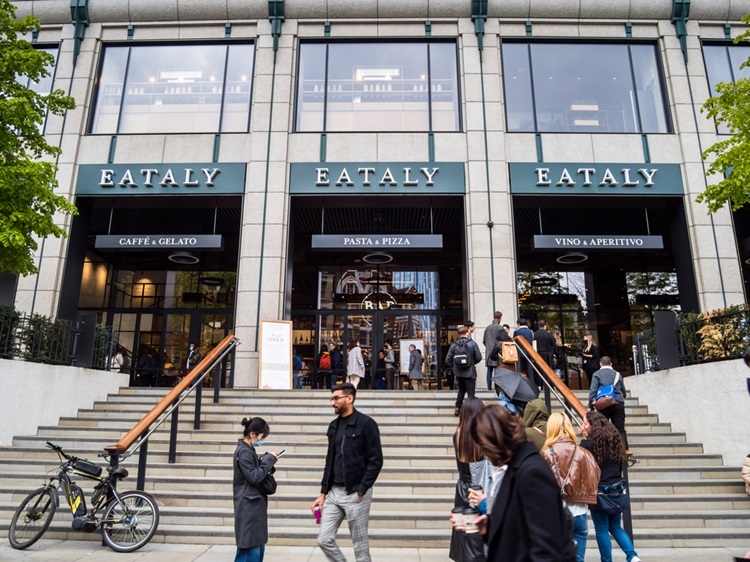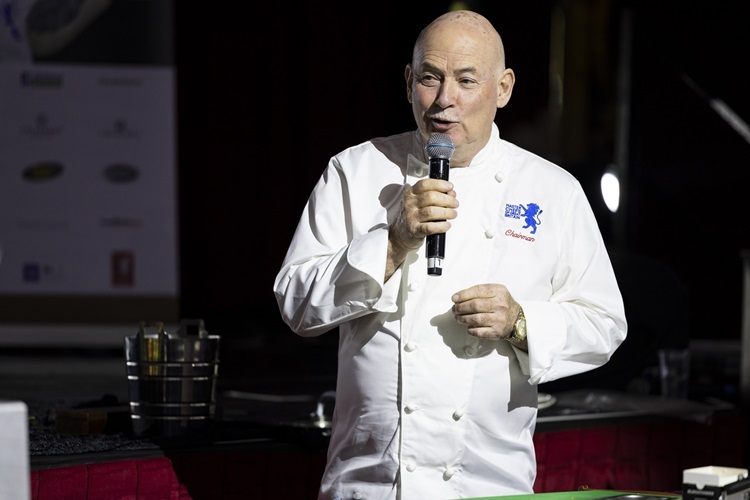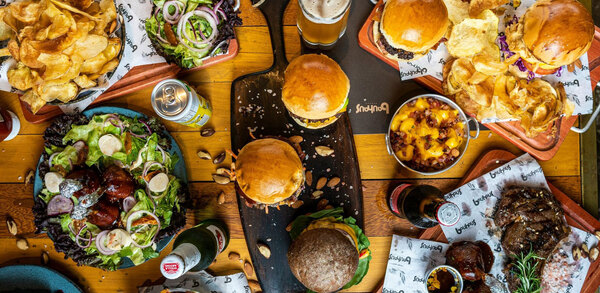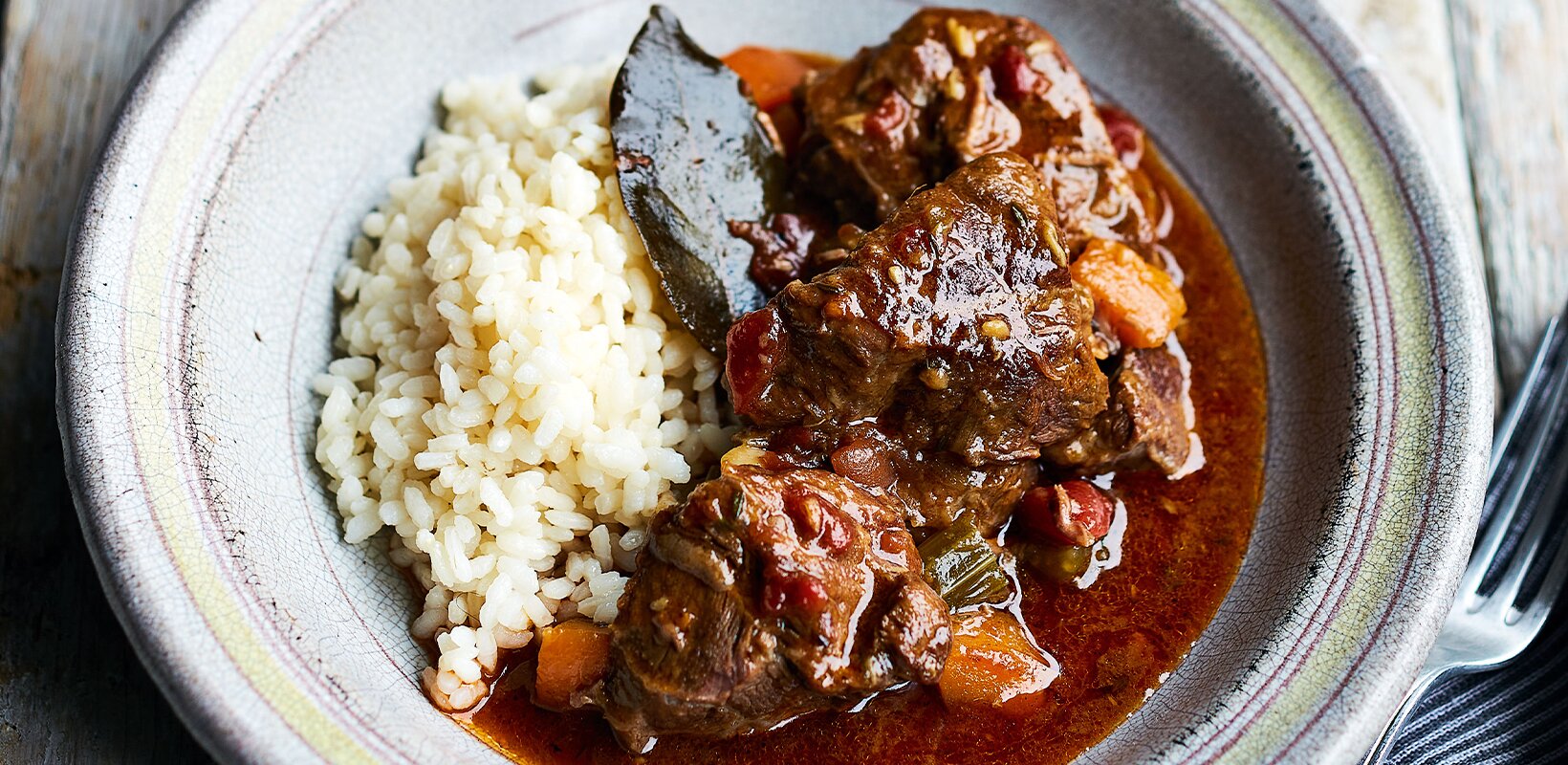Chef profile: Mark Birchall at Moor Hall
Chef-patron Mark Birchall's stunning new venue, Moor Hall in Aughton, West Lancashire, offers a fresh interpretation of seasonal British food in a country house setting. Stephanie Sparrow reports
Mark Birchall has chosen a storybook setting for the latest chapter of his career. On 8 March he opened the ancient, studded doors of Moor Hall, a restaurant with rooms. Its tranquil position, nestling within five acres of grounds by a lake in low-lying Lancashire farmland, belies its easy road access to Liverpool and Manchester.
This romantic location is a far cry from some of the properties Birchall had considered redeveloping as a showcase for his modern British cuisine, after leaving the role of executive chef at the two-Michelin-starred L'Enclume in Cartmel, Cumbria. "I looked at all sorts," he smiles, "even a high-street Indian in Prestbury."
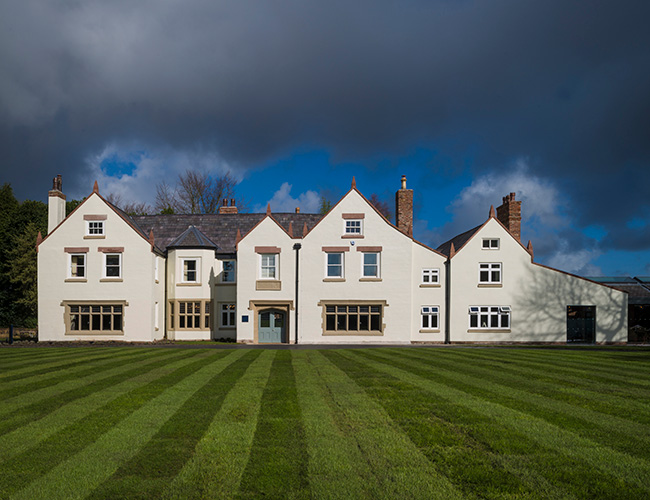
At this point, Moor Hall was a private residence. "It was full of incredible antiques and it was a little bit overwhelming, I suppose," he says. "Then we viewed it again and I could visualise where the restaurant could go and how we could work it, and that was that."
The Bells, who are shareholders and directors of Moor Hall, acquired the property in 2015. They do not disclose what they paid, nor what has been spent since. However, Andy, who is chief executive of AJ Bell, a provider of investment products and stockbroker services, does reveal that it was on the market for £2m at the time, adding: "It has been a multi-million pound renovation and refurbishment."
Birchall has built for the long term, deliberately designing a kitchen and restaurant which, at 100 sq m and 50 covers respectively, are larger than might be expected for a property with a total of seven suites.
"We are doing it for longevity and to set a platform so that we can achieve," he says of his kitchen, which features Dekton surfaces, Rational convection ovens and an induction stove by Ecochef. "Touch wood, we will be successful. In 10 years we might need a brigade of 20-24 chefs. We want the space for that."
Alastair Shepherd is director of the hotel's architects, Falconer Chester Hall, which is known for its work on landmark projects such as the conversion of the Grade II-listed Royal Insurance Building in Liverpool into an Aloft hotel. He understands that Birchall was laying foundations for the future, not just in terms of size but also in the quality of the build. "The aim from the outset was to create something that would end up being world class," he says.
The scope of the work meant that Birchall shared the site with up to 150 contractors on some days. Their work on the house included making good the haphazard repairs implemented by previous owners centuries ago. Outdated plumbing and electrics were replaced, and a "waste water tank the size of a mini-bus and a substation" had to be installed.
Diners have views of both the grounds and into the kitchen. The 4.5-metre pass runs horizontally inside an open entrance, framed by glass panels. Birchall is uneasy about the potentially "rigid nature" of fine dining, so was keen to create "greater guest involvement", an idea which he has taken further by installing a walk-in cheese room in the restaurant.
"This is just something to get guests away from the table," he smiles. "We want to introduce guests to what we do and show them how we look after our cheese."
Wheels of 12 to 15 seasonal, mostly British and Irish cheeses will sit on the shelves of the cool pantry. "There are some amazing artisan, farmhouse cheese producers in the UK and Ireland and we need to promote that," he says.
"Not everyone is a sommelier or understands wine. We just want to break down those barriers," he says. The friendly introduction printed on the broad wine list reflects this philosophy, as does its range of prices (£39-£162 a bottle, excluding Champagne and wine flights), continents and producers (from English estates to Henri Giraud the Champagne house close to the Argonne forest, hence the eponymous private dining room).
General manager Adam Wilkinson (formerly assistant manager at Northcote) says business is brisk in Moor Hall's rooms and restaurant in its first weeks. "Local people are excited," he says. "But Mark's reputation is also attracting bookings from further afield."
Moor Hall is placed among a well-heeled demographic, both in the village of Aughton and with affluent Formby and Southport nearby. Birchall adds that it will benefit from its proximity to sporting events such as the Open golf championships at Royal Birkdale at the end of July ("some American visitors have booked us for two nights"), as well as the football in Liverpool and Manchester, which will enhance its potential as a "destination" business and a successful restaurant.
The creation of two suites in the gatehouse, named after heritage fruits, like the five in the main house, will increase the offering. They will overlook the lake and open in April.
Lancashire-born Birchall is pleased to be opening on home turf and says the location means that Moor Hall is not encroaching on other north-west luminaries, such as Fraiche (on the Wirral), the Chester Grosvenor, Northcote or the Freemasons at Wiswell. "They are all a 45-minute drive away, which means there is plenty of room for another restaurant," he says.
He admits, however, that referring to Moor Hall as a "restaurant with rooms", does not convey what has been created so far. "It is already closer to a restaurant with a boutique hotel," he says, adding that the next phases of development will push boundaries further.
Birchall is also planning a bakery with bread ovens (to serve in the dining room upstairs and supplement the main kitchen) and a micro-brewery at the end of the Barn.
He is honest about his aspirations, hoping that Moor Hall will become "a centre of excellence for food". He says the next few months will be "an evolution", as he develops and presents the new menus, showcases produce grown locally and in Moor Hall's gardens, and sees the dining and production outlets in the Barn come to fruition.
"This refurbishment has been my life for two years," he says, "but I am getting to the part that I know now, being in the kitchen".
"I'd be lying if I said I didn't want a Michelin star and coveted accolades," he admits. "But I don't think you can set out to win an accolade. We have just got to try to cook and serve and offer an amazing experience to our guests and hopefully things will come along with that."
Moor Hall, Prescot Road, Aughton, Lancashire L39 6RT
01695 572511
www.moorhall.com
Owners Andy and Tracey Bell
Head chef and operations director Mark Birchall
Bedrooms Seven
Facilities 50-seat restaurant, 14-seat private dining room, cheese and wine rooms, the Barn at Moor Hall for casual dining, with a dairy, butchery, charcuterie, bakery and micro-brewery
Room rates From £195 to £350 for the Mulberry Suite
Menu prices Dinner, £65 for five courses or £95 for eight. From April, lunch will be three courses for £30 and four courses for £45
Designs on the past
Martin Nealon, creative director of Angel Martin Interiors, aims to " provide a visual link" across the five centuries of style at Moor Hall, which become apparent to guests as they progress past Tudor doors, Jacobean panelling and Victorian and Edwardian detail en route to a 21st-century restaurant.
He treated the downstairs "as a grand stage set, where the history of the building was allowed to express itself", by placing traditional studded leather seats in the lounge and bar and commissioning side tables topped with fossilised log as a "handcrafted response" to the 16th-century work around them.
The removal of plasterboard upstairs revealed leaded windows, stone walls and oak beams, which have been incorporated into the layout of the five suites. As a result, Nealon chose metallic materials and polished surfaces for the boutique-style rooms to create reflections of these traditional elements and "a dialogue between old and new".
The natural lighting in some suites required a softer palette. Nealon chose pale coffee for the Damson Suite (from £275) and Rosehip Suite (from £295), and covered its walls with fabric-backed suede. The lamps and mirrors have gold accents.
Like the bedrooms, the ensuite bathrooms showcase contrasting textures, including porcelain fired in matt and gloss to provide definition between the floors, or a natural tumbled limestone with contrasting Emperador marble.
- Baked carrots with Doddington, ramsons and sea buckthorn
- Crab and turnip broth, anise hyssop, sunflower seeds
- Aged beef in charcoal, barbecued celeriac, mustard and shallot
- Grilled scallop with cauliflower, sorrels, grains
- Monkfish roasted on the bone, garlic and mussel cream, salsify, sea vegetables
- Westmorland chicken, kales in ham fat, hen of the woods and whey cream
- Rhubarb with milk and fennel
- Honey beer, Bramley apple, aged caramel and marigold
Menu ‘8', £95
Mark Birchall: rewriting tradition
Mark Birchall's ambitions for the food at Moor Hall are spoken with the quiet confidence of a Roux scholar whose CV includes L'Enclume and El Cellar de Can Roca in Girona, Catalonia.
"We want people to enjoy high-quality, seasonal food in comfortable surroundings," he says. "It's nothing more than that."
Although he stresses that the "technique should be hidden behind the product", he concedes that there will be innovation. A Buchi-Rotavapor sits in the new kitchen, and development chef Chet Sharma, who spent time at René Redzepi's Nordic Food Lab, has been preserving and freeze-drying new flavours, which will be revealed over the coming months. One of these is likely to be meadowsweet, a herb whose historic connotations sit well at Moor Hall.
Birchall is also inspired by regional traditions. So a black pudding snack is actually an amuse bouche, "like a beignet, filled with a creamy black pudding made with fresh blood."
Local custom has also provided the pre-dessert. The neighbouring town of Ormskirk was renowned in Victorian times for its gingerbread, and Birchall will serve a gingerbread ice-cream with roots and Douglas fir syrup, exploiting sweet and savoury flavours to create a transition from the main courses. It is presented in comforting, handmade wooden bowls with wooden spoons (âI like the idea of nursing a bowl,â he says).
âI want to make people feel special,â he says, a philosophy that will also be evident in the generous breakfasts that are included in the room rate, priced from £195 a night. Guests will sit down to âindividual buffets of hot and cold foodâ, including home-made yogurt, charcuterie and smoked salmon.
âWe need to deliver right to the end of the guestâs stay,â he says.



